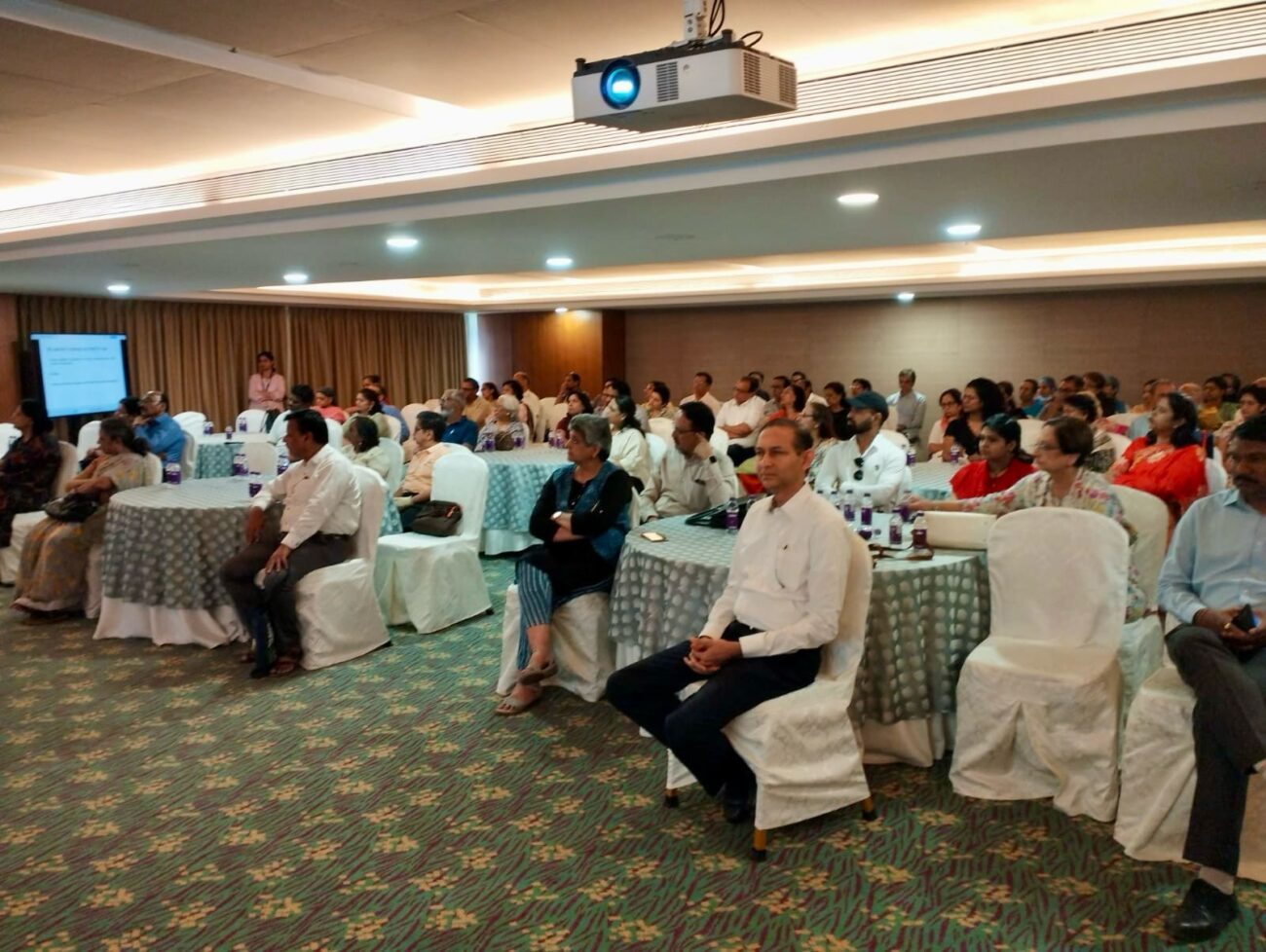Why Hospitals Should be Well-Prepared to Embrace Cross-cultural differences of International patients?
A major outcome of the dynamic medical tourism is seen with hospitals all over the world receiving many international patients from diverse cultural backgrounds. The trend is growing. This gives rise to an obvious question – Are the hospitals
A major outcome of the dynamic medical tourism is seen with hospitals all over the world receiving many international patients from diverse cultural backgrounds. The trend is growing. This gives rise to an obvious question – Are the hospitals prepared well enough in understanding the cultural issues? To what extent are they successful in addressing varied issues of patients arising from cultural differences?
Deep-rooted cultural perceptions of patients influence their decision-making in medical treatment and adherence to it, which has a direct impact on the treatment outcome. Hospitals need to build cultural competence by broadening the capacity to provide effective medical care with appropriate knowledge, skills, attitude and behavior.
Better cultural understanding – improved treatment outcomes:
Patients seeking healthcare services abroad consider the ‘culture’ factor quite seriously. Will I be able to communicate my problems? Will the foreign hospital respect my cultural beliefs and values? These questions always work in their hindsight.
It is, therefore, an obvious outcome we see Brits preferring English speaking countries, Americans preferring Thailand or Mexico, Japanese traveling to Taiwan, Muslims preferring GCC region and Malaysia, the list is endless.
Research and studies showed better cultural understanding leads to:
- Improved patient-provider relationship
- Better diagnosis and treatment plans
- Lesser medical errors
- Enhanced patient experience.
- Improved treatment outcomes.
This is what matters most for globally reputed hospitals offering any kind of healthcare assistance.
Build cultural empathy:
It implies seeing the world with the patient’s eyes. Empathy is not a mere act of kindness but is the central piece of healing. While cultural diversities will continue to shape the beliefs and practices of human beings, hospitals need to ingrain cultural empathy in its DNA.
A study published by JAMA in 2011 reveals kindness, respect, empathy and privacy were in the highest priority list of international patients where real cost appeared at the bottom. Patients are eager to build a relationship with the provider on whom they have confidence and would prefer the same provider in future episodes of illness.
Identifying and addressing the barriers:
Communication:
Effective communication is the cornerstone of developing cultural empathy. Strong evidence-based studies conclude good communication skill is essential to deliver value-based patient-centric care. Multiple studies link good communication with better patient outcome. It reduces adverse events and shortens hospital stay.
For international patients, the inability to communicate properly is the first stumbling block. Certified medical interpreters do a praiseworthy job by not only translating the words of the patient but also his/her feelings. But there are more to be considered based on the patient’s perspective and his/her cultural background.
How would you greet the international patient? Proper greeting sets the tune of communication. Hi, Hello may be the usual norm in western countries but not in Asia. A majority of international patients are comfortable with handshake but not all. Japanese are used to bowing although they accept shaking hands. Ethnic Chinese prefer a light handshake.
All Asian women may not prefer handshake but prefer nodding, bowing or folding hands. Prolonged eye-contact during communication is appreciated by the Americans, Australians and some Europeans, but the Chinese may take it as confrontational. Even using the left hand while giving or accepting something goes against the cultural etiquette of many countries.
Next comes addressing the patient. Should you address the patient by his/her name? This might work fine with most of the US citizens but not with Europeans who prefer to be more formal. It is always safe to add prefix Mr./Mrs. while addressing the patient.
Patients from the US, Australia, Europe and some Asian countries prefer free communication about the disease with the doctor but those from Russia and Islamic countries may not be comfortable with it. Russians are used to the parental approach in healthcare and expect the same in a foreign hospital. They feel more comfortable if guided what is required to do.
Japanese have high regard for doctors and seldom question their diagnosis and treatment plans but Americans prefer to go for the details. Female patients from the Islamic background may not be comfortable in discussing physical issues with the doctor.
Male members, especially from African, Islamic and other Asian countries, may be more participative in discussing ailments on behalf of the female patient and take the lead in decision-making. Physicians need to be careful with word choice as names of specific body parts or disease may be considered offensive to patients of conservative background.
It may be somewhat easier to build an effective communication channel with patients hailing from countries practicing cultural pluralism. Often, it is highly energy demanding for the doctors and patients to understand the requirements and remedies. Poor health literacy of international patients compounds the problem. Hospitals should be prepared enough to handle this sensitive area with care and kindness.
Touch:
Many instances support the fact physical touch by the doctor takes off the patient’s emotional load. A pat on the patient’s back during consultation accompanied by an amicable smile from the doctor signals everything will be fine. The historian and author of “In the Hands of Doctors: Touch and Trust in Medical Care” states that many patients feel the doctor’s physical touch helps in getting better.
Considering the cultural diversities of international patients, this touch should be applied with great care without hurting anybody’s sentiments or modesty. For example, Islamic women especially those unmarried may not be comfortable with the touch during physical examination. Hospitals should take utmost care to this factor.
Medical beliefs:
Many ethnic groups rely on traditional medicine in most cases. Even though they seek advanced healthcare services, their traditional beliefs often create serious problems for physicians in delivering the right treatment and care. Japanese, Chinese and few African nationals are still inclined towards time-tested traditional form of treatments. It may be a trying time for the hospital to convince patients regarding the usefulness and dangerous aspect of certain therapies.
Food habits:
Food habits vary widely with culture. Certain food items may not be liked by people hailing from a specific cultural background. Hospitals and clinics need to make special culinary arrangements based on the cultural background of visiting patients.
Hospitals of GCC region and South Asia catering to a large number of Muslim patients have special arrangements during the fasting months and other religious occasions. Serving halal meat is the norm. Pork and alcoholic beverages are strictly prohibited.
Nursing and attendance:
Patients from the Middle East, Turkey, African nations especially women from a conservative background are likely to prefer same-sex medical care and attendance. Hospitals need to make special arrangements for this.
Privacy is a prime concern. So women may prefer covering themselves with a gown to prevent exposure of body parts during physical examination. Patients may ask for a religious ritual before a critical surgery which could be permitted under special consideration.
Medication:
Cultural difference can even influence the choice of medication. During the months of fasting, Muslin patients from Middle East, Turkey and some South Asian countries may refuse oral medication. They might prefer IV drip. Since alcohol consumption is strictly prohibited in Islam. Hospitals should take care not to prescribe medications with alcohol. In case of unavailability of any alternative, the patient should be explained properly.
Maternity and female care:
Female patients are naturally more sensitive about privacy and touch. It becomes mandatory the hospital to show sympathy and maintain comforting touch (even by same-sex physicians and attendants) during the physical examination especially in child delivery, mammogram tests and surgery in private parts of the body.
In Islamic custom, the placenta after delivery should be handed over to the parents for proper disposal. Some cultures may require performing certain birth rituals before and after delivery. If these rituals pose health threats to the mother and the baby, it should be explained politely.
Displaying cultural competence may not be confined within medical services. Many complaints and grievances of international patients are non-medical like those related to basic necessities. They expect proper arrangement for religious services, transportation, cell-phone connection, banking services, special accommodation for the accompanying members, shopping, dining and other entertainment activities. Hospitals offering medical assistance to this unique group of international patients must take this into account and carefully assess their ability to deliver empathetic care.





